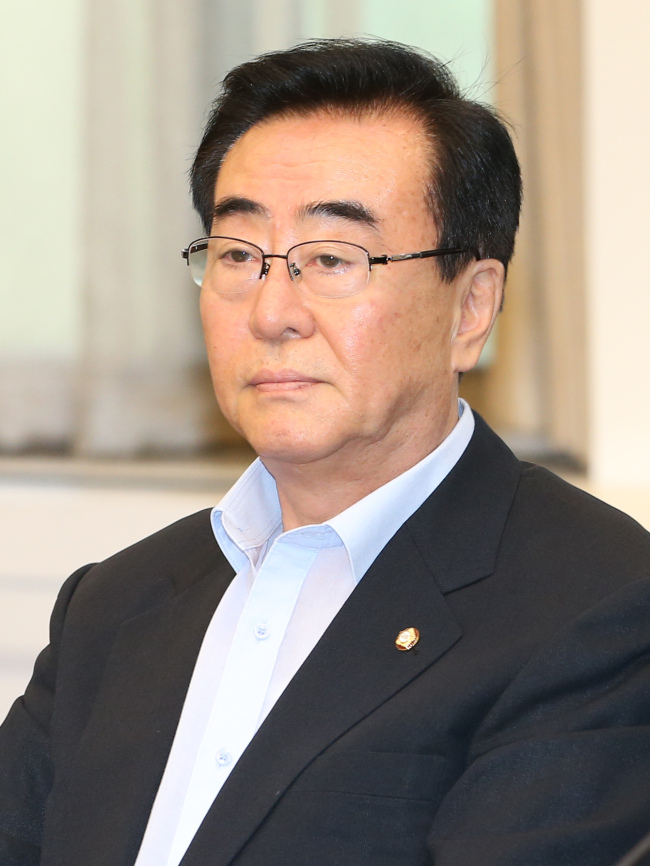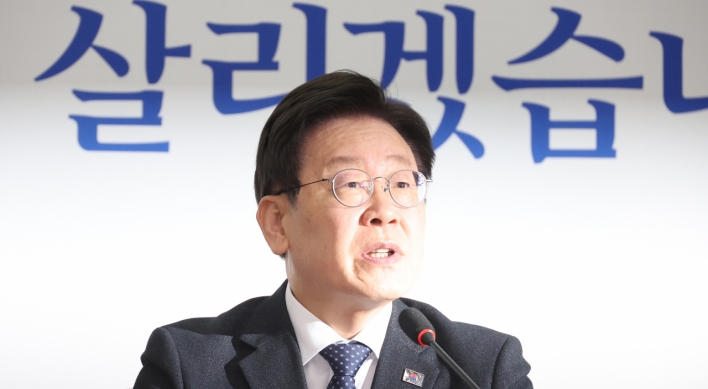[Newsmaker] Two lawmakers face uproar over kids' employment favors
By Yeo Jun-sukPublished : Aug. 19, 2015 - 18:31
A number of lawmakers are facing increasing pressure on allegations that they influenced sought-after workplaces to hire their children.
Rep. Kim Tae-won of the ruling Saenuri Party and Rep. Yoon Hu-duk of the main opposition New Politics Alliance for Democracy came under fire for allegedly using their parliamentary clout to give their kids job opportunities at Korean Government Legal Service and the nation’s top display-maker LG Display, respectively
Despite their plea of innocence and attempt to downplay their behavior, the public has criticized them amid the country’s surging youth unemployment rate and declining job security.
Kim, denying the allegation, said he would resign from his seat if it was found true. Yoon said he merely made a phone call to “check on” her own daughter’s resume.

The rival parties’ websites soon became inundated with criticisms against the politicians working under the slogan of creating more jobs for the youth, while giving back-door access to their own kids.
Some comments even associated the case with “eum-seo,” an ancient hiring system of government officials during the Goryeo and Joseon kingdoms of pre-modern Korea.
Under the system, aristocrats’ offspring were allowed to become public servants without going through the excruciating exams that average citizens had to take. The system has been used to give extra benefits to the children of aristocrats.
Faced with the public uproar, the two parties have set out to address the issue and prepare measures.
Saenuri Party Rep. Hong Il-pyo urged the National Assembly to pass a law that allows for swift punishment of lawmakers who are involved with such irregularities.
NPAD Rep. Lee Sang-min, chair of the Assembly’s Legislation and Judiciary Committee, said in an interview with local media outlets that lawmakers should revise the anti-graft bill, also known as the Kim Young-ran bill, to prevent conflict of interest among high-profile officials.
Critics, however, said that signing new legislation or strongly enforcing relevant laws would be a temporary fix and not enough to prevent the occurrence of similar political scandals that have been prevalent and commonplace in Korea through the decades.
“I think the scandal is more of a moral case, rather than a legal one,” said Seol Dong-hoon, sociology professor at Chonnam National University. “If we try to apply laws to the scandal, the lawmakers could be proven not guilty and get away with it,” Seol said.
“Considering the lack of governing rules that can apply to these kinds of scandals, the most efficient way to prevent them from happening again is to relay the case to the voters and tell them not to vote for those lawmakers,” said Seol.
Other experts attributed the scandal to the lack of political progress that lags behinds the nation’s economic development. Kim Joong-baeck, sociology professor at KyungHee University, pointed out that politicians should come up with strategy and leadership corresponding to Korea’s post-democratization era.
“In Korea’s political landscape, I am not sure how many politicians would be immune to the all-out enforcement of the antigraft bill. What is worse, no matter how effective the bill is, some politicians would remain unscathed and come back to the political scene as long as they are elected,” said Kim.
“I believe the issue is what we face after achieving economic development and rudimentary democracy. Compared to our remarkable economic success, we lack solid and sophisticated democratic rules. Politicians should develop specific policies and proactive leadership to address such a delicate issue,” said Kim.
By Yeo Jun-suk (jasnoyeo@heraldcorp.com)








![[Hello India] Hyundai Motor vows to boost 'clean mobility' in India](http://res.heraldm.com/phpwas/restmb_idxmake.php?idx=644&simg=/content/image/2024/04/25/20240425050672_0.jpg&u=)









